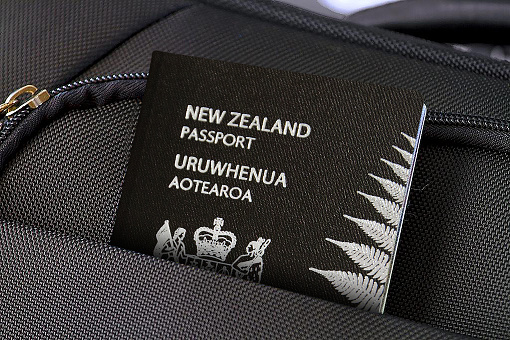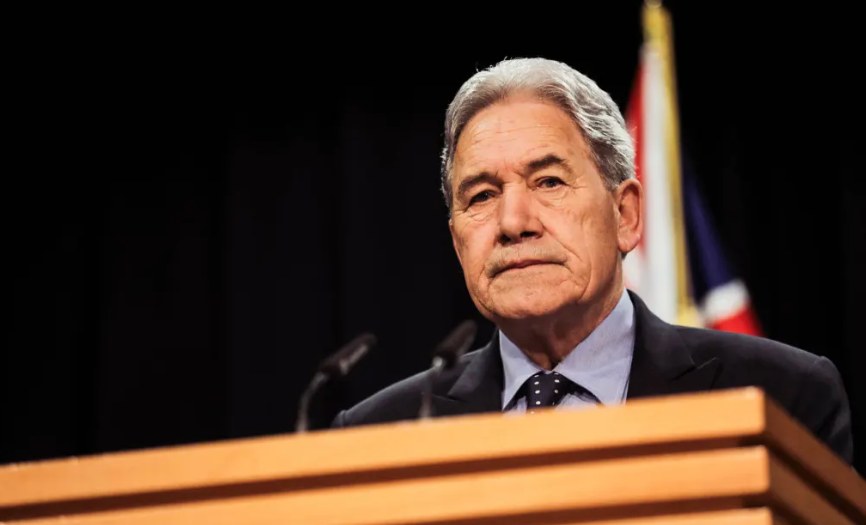
Kia ora Winston,
I know we still haven’t managed to have that long-promised lunch to unpack the true meaning of the term woke which, given your political instincts, I suspect you secretly enjoy throwing around just to keep everyone on their toes.
But before we sit down over a steaming plate of puha to have that kōrero, (see what I did there) I was wondering if I could add another topic to the agenda: the use of Māori on the New Zealand passport.
It seems, somehow, that the order of two words on a travel document now ranks among the great political battlegrounds of our time. Forget the cost-of-living crisis. Forget child poverty. Forget the price of butter which, somehow, has become a handy distraction from the real costs hitting household budgets. Rent, insurance, petrol, electricity, rates. You know, those things we don’t have any option about paying.
And that’s what’s confusing me. I find it difficult to believe that in times like those we are currently facing, what matters most to you, and Brooke van Velden, is whether our passports say New Zealand Aotearoa or Aotearoa New Zealand. I know Brooke won’t be coming to share kai with us (sorry did it again) but there is a bit to discuss here don’t you think?
You and I both travel. I’ve got the older passport that leads with New Zealand. My son has the updated version that begins with Aotearoa. And miraculously, we both manage to get through international border controls all over the world. In the last month that included, Dubai, Paris, Lisbon, Seville, Belfast and Dublin. No panic. No confusion. Just a couple of kiwi travellers doing what travellers do. Handing over our passports to show where we come from.
So, if no one at the border seems to care which name comes first, is this really the debate we need to be having here in Aotearoa New Zealand? Maybe when we do sit down for that lunch, we could have a better one: where did the name New Zealand come from in the first place?

No, instead Dutch cartographers back in Europe dubbed it Nova Zeelandia, after their own province of Zeeland. A flat, soggy region famous for its’ windmills, dykes, cheese, tulips and canals. Not a single Pohutukawa tree in sight.
I don’t know about you, but I’m not sure windmills and cheese wheels quite capture the essence of who we are. And yet somehow, this adopted name, bestowed by men who didn’t even disembark, has become sacrosanct to some, while Aotearoa, a name used to describe this land for centuries before Tasman turned up, is treated by some as irrelevant, with little or no place in our history.
But I do think you and I will be able to find a few things in common when we get to this part of our korero. I actually don’t know why the order on the passport was changed in the first place. I quite like the old cover on my passport, where Aotearoa sits below New Zealand.
In fact, one could argue that having Aotearoa beneath New Zealand is symbolic. That it reflects the foundation, the whenua, on which this nation was built. Recognising that Aotearoa was here first and we built a new nation, together, on top of that foundation.
I hope you don’t think that is too woke of me.
This isn’t just about your argument to change it back. The same argument could have, and perhaps should have, been made when someone decided to make the first change. But now it’s become an ideological battle, not a discussion. It’s less about identity and more about headlines.
But surely this is not a debate that belongs on the front pages, and certainly not in Parliament’s time. It looks like a turf war between two minority parties fighting over the same narrow band of voters. Voters you both need to stay above that 5% barrier that, in the current MMP environment, gives minority parties, on both sides, far more power than was ever intended. A power that has led to a growing division between us that will ultimately weaken us as a nation the world looks up to.
If you're looking for what a modern, unified New Zealand looks like, I suggest you go back and watch Michaela Sokolich-Beatson’s post-match speech after the Northern Mystics v Tactix netball final last weekend. Michaela spoke beautifully, switching naturally between English and te reo Māori. It was moving, eloquent and powerful. It showed that both languages, both cultures, are now a part of who she is.
And then her team delivered a haka. When Michaela Sokolich-Beatson and her team stood after their loss and delivered that haka, it wasn’t a challenge. In Māori culture it’s a gesture of honour and pride. A way to acknowledge their opponents, their teammates, and the community they represent. It was powerful because it wasn’t about the scoreboard, it was about identity, unity, and respect. That haka didn’t just mark the end of a match. It marked who we are now.
So, Winston, about that lunch. Let’s talk woke. Let’s talk passports. But more importantly, let’s talk about how we shift the focus back to the real work that needs doing, on both sides of the House.












